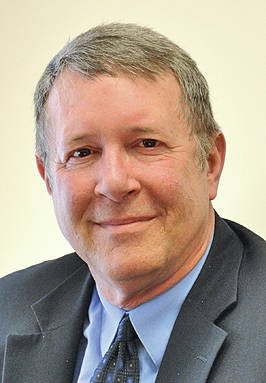
Winning an $844,000 federal grant to fight crime and promote economic and neighborhood revitalization at Rocky Fork Lake was seen as a big victory for the lake area.
The project began as the Rocky Fork Lake Area Safety and Advancement Planning Process (RFL-ASAP). Starting in December 2014, a series of meetings and tours were held, some involving as many as 90 county and local officials, business owners and others, all contributing ideas, many of which were ultimately used in the grant application.
The big grant award was announced in October 2016 to much fanfare. A county commissioner meeting right after the award was announced featured a tightly-coordinated series of congratulatory phone calls from various federal and state elected officials. A public ceremony was held later at the lake, where a local bank donated office space for a sheriff’s deputy to be stationed there full-time, along with a cruiser donated by Fayette County.
The full implementation plan for the grant was seemingly approved by the feds in February 2017, and some of the funds were actually released. Just two months later, everything came to a screeching halt when word came that the agency making the award – the Byrne Criminal Justice Innovation Program, which is part of the U.S. Justice Department – was suddenly identifying various problems.
Among those was a declaration that the “land bank” part of the plan was not permissible. The land bank was the entity through which part of the grant money would flow to clean up and rehabilitate blighted properties. Complaining about the land bank was particularly odd, since it had been mentioned multiple times in the application and implementation plans.
So let’s examine this. The award was announced in October 2016. By early 2017, it was suddenly placed on hold. Can we think of anything significant that happened just after October 2016?
As I’ve pointed out before, our state and federal governments are actually run by unelected bureaucrats who stay in their jobs for years. Many bureaucrats are fine, well-meaning people. But one dictionary defines a bureaucrat as “an official in a government department, in particular one perceived as being concerned with procedural correctness at the expense of people’s needs.” Precisely.
Term limits have made that problem even worse at the state level. But it’s a problem at the federal level, too, where a change in presidential administrations — especially from one party to the other — results in strange things happening.
The Rocky Fork grant award was made in October 2016 when President Obama was still in office. Donald Trump’s upset win in November 2016 stunned the bureaucrats working in the Obama administration who dreamed of one Democrat president being replaced by another Democrat president.
Instead, their world was rocked by Trump’s victory, even though it didn’t necessarily mean they were out of a job. Bureaucrats often hold onto their positions even through party switches. On the lake grant, the commissioners have been dealing with the same federal coordinator under the Trump administration who they were dealing with under the Obama administration.
But what it did mean was that the policies, programs and directives employed by Obama were taking a dramatic turn to the right. In fact, funding levels for future similar grants have already been reduced under the Trump administration.
Did the change in administrations have a negative impact on the Rocky Fork grant? Did the bureaucrats who administer the grants say “Not so fast!” after noticing the 76 percent voter support for Donald Trump in Highland County just a month after the big grant award from the Obama Justice Department? Or, if partisanship was not a factor, did the Trump administration issue a new set of guidelines that made it more difficult for Highland County to collect the grant it had already been awarded?
Another, less conspiracy-minded theory floated to me is that the grant administrators are not accustomed to working with such a small county as Highland, one which does not have offices crammed with administrative personnel to implement grants, and which has instead brought in various community partners such as the Community Action Organization, which makes the feds uncomfortable.
Who knows. Again, just like the land bank, the size of the county and its staff limits were well known when the grants were initially approved. The only tangible change between approval and disapproval was going from one presidential administration to another.
I don’t like posing a bunch of questions without trying to get the answers, so I called the Justice Department Monday morning. I soon received a return call, which didn’t surprise me, because federal staffers are good at returning calls. I then received an email, asking me to email my specific questions, which I did. As of this writing a couple of hours later, I haven’t received an answer, which didn’t surprise me, because returning calls is a priority, but providing answers is not.
As with most government grants, this one was filled with endless hoops. The purpose of winning one grant is often to facilitate the winning of the next one. Government bureaucrats love the process, which is required. Results are optional.
Everyone locally who pursued the federal funding did so with great intentions, and they are bewildered and angry at the holdup. For Rocky Fork Lake residents and businesses, the whole thing is depressing. But the rest of Highland County should be just as upset. Rocky Fork remains our most under-utilized economic development tool, a situation that seemed to be finally on the verge of changing.
Reach Gary Abernathy at 937-393-3456, or follow on Twitter @AbernathyGary.


